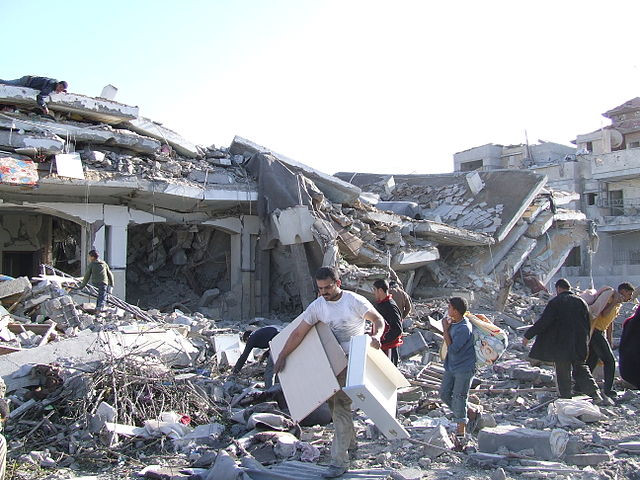Hamas has rejected an Israeli proposal to extend the first phase of the Gaza ceasefire by 42 days, insisting that negotiations must move to the next stage, which includes a full Israeli withdrawal from the enclave. The militant group's stance complicates ongoing talks in Cairo, where mediators from Egypt and Qatar have been working to secure an agreement before the current truce expires on Saturday.
"Extending the first phase of the deal in the format that Israel wants is unacceptable to the organization," Hamas spokesman Hazem Qassem told Al Araby television. The group contends that Israel is attempting to secure the release of the remaining 59 hostages still held in Gaza before resuming military operations, rather than advancing toward a comprehensive settlement.
Israeli officials have not publicly responded to Hamas' rejection. However, Prime Minister Benjamin Netanyahu's office previously stated that Israel remains committed to discussions aimed at securing both the return of hostages and the demilitarization of Hamas. Israeli negotiators left Cairo on Friday evening, raising concerns about whether talks would resume before the ceasefire officially expires.
The ongoing truce, which began on January 19, halted hostilities after more than 15 months of war. During the ceasefire's first phase, Hamas released 33 Israeli hostages, including eight bodies, in exchange for nearly 2,000 Palestinian prisoners and detainees. While negotiations continued, fighting was not to resume. However, progress on the second phase of the agreement has been elusive.
Hamas insists that the next stage must include an Israeli military withdrawal from Gaza, an end to the war, and further exchanges of hostages and Palestinian prisoners. It "reaffirms its full commitment to implementing all terms of the agreement in all its stages and details," Hamas said in a statement Friday, urging international actors to press Israel into "immediately proceeding to the second phase without any delay or evasion."
Netanyahu's office has previously indicated that Israeli negotiators have also been discussing measures to expand humanitarian aid to Gaza, a move aimed at easing the humanitarian crisis in the war-torn enclave. The U.N. World Food Program said Saturday that it had reached one million Palestinians in Gaza with assistance during the ceasefire, helping to restore food distribution points, reopen bakeries, and expand cash aid programs.
Yet, Gaza residents report continued shortages of food and medicine, despite increased aid deliveries. Khalid Abu Sultan, a 33-year-old resident of the Jabaliya refugee camp, said market prices remain high, making it difficult to buy basic groceries. "Ramadan usually brings joy and delight, but this year it will be bleak," he said.
The war began on October 7, 2023, when Hamas-led militants launched a cross-border attack into Israel, killing nearly 1,200 people and taking 251 hostages. In response, Israel launched an extensive military campaign, vowing to dismantle Hamas. More than 48,000 Palestinians have been killed in the conflict, according to Gaza health officials, who do not distinguish between civilians and combatants. The war has also left much of Gaza's infrastructure in ruins.
A senior Hamas official, Basem Naim, told The Associated Press that "no progress" had been made in Cairo before Israeli negotiators left. It remains unclear whether mediators from Egypt and Qatar will return to the negotiating table on Saturday or if hostilities will resume when the current ceasefire formally expires.




